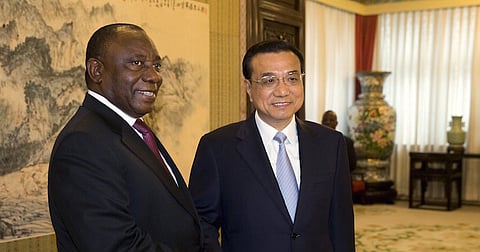Warning: The dark side of Chinese loans – The Wall Street Journal
DUBLIN — Beware Chinese officials bearing gifts. That seems to be the underlying message from this startling WSJ investigation into the details of Chinese involvement in the Malaysian government fund at the centre of a major graft scandal. As The Wall Street Journal reports, Chinese officials apparently engaged in a wide range of unsavoury actions related to a bailout of the Malaysian fund, including offering to spy on journalists and use China's influence to delay probes into allegations of theft from the fund. In return, Malaysia offered China lucrative deals for its famous One Belt, One Road programme and growing influence over Malaysian politics. The investigation highlights the risks and potential for corruption associated with borrowing money from Beijing. As South Africa borrows billions from China to repair ailing Eskom, the news from Malaysia should be alarming. After all, the country has only recently started to clean up the consequences of the Gupta/Zuma state capture scandal. Our battered democratic institutions may not survive another corruption scandal. – Felicity Duncan
WSJ Investigation: China Offered to Bail Out Troubled Malaysian Fund in Return for Deals
(The Wall Street Journal) – Senior Chinese leaders offered in 2016 to help bail out a Malaysian government fund at the centre of a swelling, multibillion-dollar graft scandal, according to minutes from a series of previously undisclosed meetings reviewed by The Wall Street Journal.
Chinese officials told visiting Malaysians that China would use its influence to try to get the US and other countries to drop their probes of allegations that allies of then-Prime Minister Najib Razak and others plundered the fund known as 1MDB, the minutes show.
___STEADY_PAYWALL___

